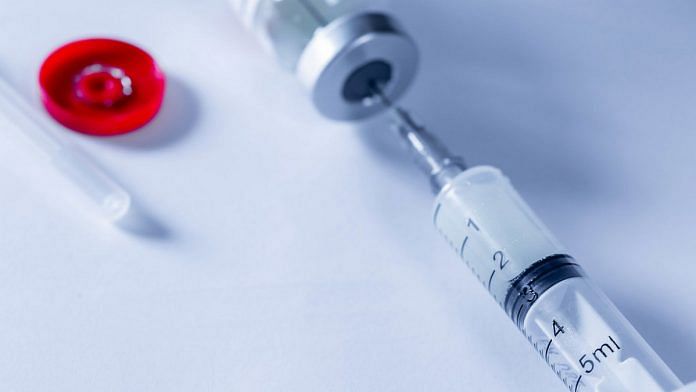New Delhi: A new study has found that use of contaminated needles and equipment during blood transfusion by healthcare professionals is behind the unprecedented outbreak of HIV, reported earlier this year, among children in Pakistan. Many of those affected are under five years of age.
The research, published in The Lancet Infectious Diseases, also showed a 54 per cent increase in paediatric diagnoses of HIV over the past 13 years.
The observational study of over 30,000 people is the first scientific report on the outbreak, first discovered in the town of Ratodero in April this year. It confirms the observations by a Pakistani government task force that HIV was mostly transmitted to children as a result of healthcare providers using contaminated needles and blood products.
The government task force — supported by scientists and UN agencies — had earlier found that needles in public and private hospitals were being reused and blood transfusions carried out without screening for infections. This had led to the closure of three blood banks, almost 300 clinics, and the Sindh Health Care Commission.
The new report also found that due to an inadequate supply of drugs and lack of trained healthcare staff, 67 per cent of the 591 children registered for HIV care started anti-retroviral treatment by mid-July.
“Pakistan has experienced a series of HIV outbreaks over the past two decades, but we’ve never before seen this many young children infected or so many health facilities involved,” said one of the researchers, Fatima Mir from The Aga Khan University in Pakistan, in a statement.
“Use of syringes and needles is widespread and Pakistan has one of the highest rates of unsafe injections in the world. Health practitioners need to use intravenous treatment only when necessary, use needles only once, and screen blood for infections before using it for transfusions,” Mir added.
Also read: Mizoram reports highest number of HIV cases with 17,897 people testing positive
Unregulated hospitals, clinics
The Lancet report suggested that most people in Pakistan are served by the country’s private health sector, which includes unregulated hospitals and doctors.
For their study, the researchers had consulted reports collected by the government task force during a screening camp at Tehsil Hospital in Ratodero in May this year.
It was found that between 24 April and 15 July 2019, 31,239 people tested for HIV. Data on their clinical history, such as previous injections, cannulations, blood transfusions, and parental HIV infection were also collected.
A total of 930 people tested positive for HIV, of whom 604 (79 per cent) were five years old or younger, and 763 (82 per cent) were younger than 16 years. Doctors had earlier observed a high numbers of paediatric diagnoses in their clinics, but this is the first time that an analysis of the exact figures was available.
Virus spread via injections to treat diarrhoea, respiratory illness
The study also noted that by the beginning of July this year, 591 children had been registered for HIV care in Pakistan. The average age of those affected was three years old, and 478 (81 per cent) of the 591 children were five years old or younger.
Prior to March 2019, only 1,423 children had registered for HIV care across Pakistan. And data was available for 453 out of 763 children to suggest how they became infected — 89 per cent reported getting infected from previous injections, usually to treat diarrhoea or respiratory tract infections.
Out of these 453 children, a smaller number (40/453 or 9 per cent) had undergone blood transfusions, usually to treat iron deficiency anaemia, while four of them were also treated for blood disorder thalassaemia.
Also, 15 children (out of the 453) had received neither injections nor blood transfusions. Of these, 12 of their mothers had an HIV test and all tested positive.
Also read: These forgotten women played a huge role in eradicating smallpox from India



